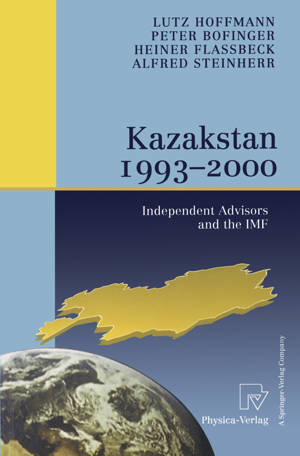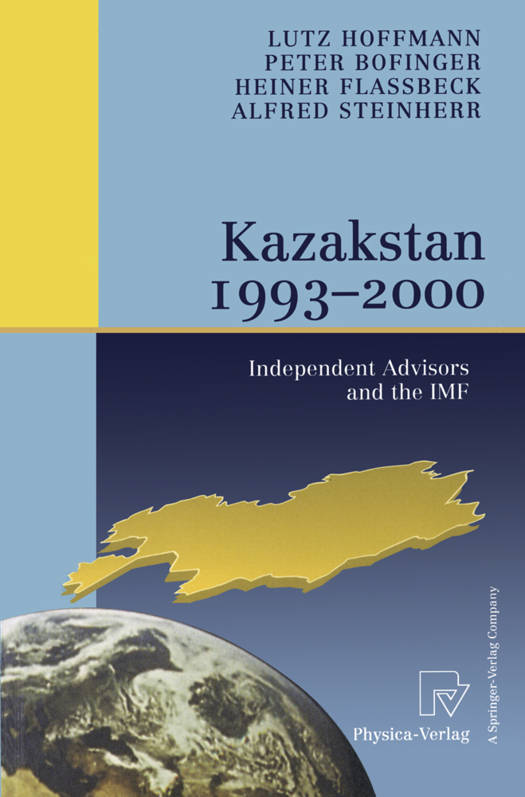
- Afhalen na 1 uur in een winkel met voorraad
- Gratis thuislevering in België vanaf € 30
- Ruim aanbod met 7 miljoen producten
- Afhalen na 1 uur in een winkel met voorraad
- Gratis thuislevering in België vanaf € 30
- Ruim aanbod met 7 miljoen producten
Zoeken
Kazakstan 1993 - 2000
Independent Advisors and the IMF
Lutz Hoffmann, Peter Bofinger, Heiner Flassbeck, Alfred Steinherr
Paperback | Engels
€ 52,95
+ 105 punten
Omschrijving
By introducing a new national currency in November 1993, the Republic of Kazakstan took a decisive step towards establishing its political and economic independence. In the following years, Kazakstan made great efforts to lay the institutional foundation for econonmic policy in line with a free market system. The cooperation between Kazak experts and independent international advisors such as the group of German econonmists under the leadership of Lutz Hoffmann played an important role for the Kazak government in choosing the most effective concepts and instruments for economic policy. Thus, the main topic of this book is the discussion of the macroeconomic problems during the first years of transition and the role of international financial institutions, in particular the International Monetary Fund.
The topics are dealt with in a new form of presentation, collecting the papers of the advisory group in chronological order.
The topics are dealt with in a new form of presentation, collecting the papers of the advisory group in chronological order.
Specificaties
Betrokkenen
- Auteur(s):
- Vertaler(s):
- Uitgeverij:
Inhoud
- Aantal bladzijden:
- 278
- Taal:
- Engels
Eigenschappen
- Productcode (EAN):
- 9783790813555
- Verschijningsdatum:
- 27/11/2000
- Uitvoering:
- Paperback
- Formaat:
- Trade paperback (VS)
- Afmetingen:
- 156 mm x 234 mm
- Gewicht:
- 412 g

Alleen bij Standaard Boekhandel
+ 105 punten op je klantenkaart van Standaard Boekhandel
Beoordelingen
We publiceren alleen reviews die voldoen aan de voorwaarden voor reviews. Bekijk onze voorwaarden voor reviews.











